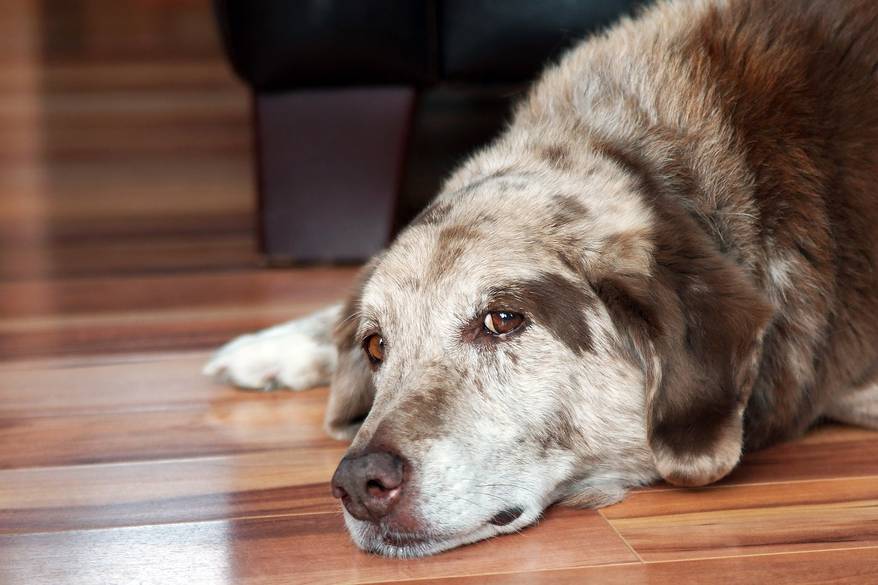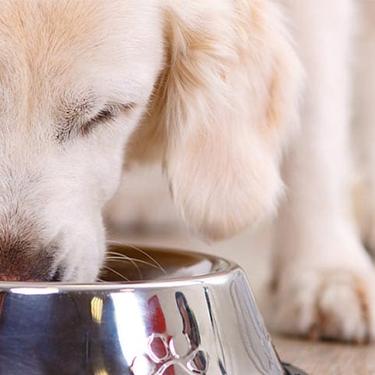
-
Find the right food for your pet
Take this quiz to see which food may be the best for your furry friend.
Find the right food for your pet
Take this quiz to see which food may be the best for your furry friend.
Featured products
 Small & Mini Savory Stew with Chicken & Vegetables Dog Food
Small & Mini Savory Stew with Chicken & Vegetables Dog FoodA delicious complement to the nutrition of Science Diet Small & Mini 7+ dog food
Shop Now Adult 7+ Perfect Digestion Chicken, Whole Oats & Brown Rice Recipe Dog Food
Adult 7+ Perfect Digestion Chicken, Whole Oats & Brown Rice Recipe Dog FoodScience Diet's breakthrough nutrition supports ultimate digestive well-being & healthy microbiome for dogs age 7+
Shop Now Adult Healthy Cuisine Roasted Chicken, Carrots & Spinach Stew Dog Food
Adult Healthy Cuisine Roasted Chicken, Carrots & Spinach Stew Dog FoodDelicious roasted chicken paired with tender vegetables in a succulent stew
Shop NowFeatured products
 Adult 7+ Tender Tuna Dinner Cat Food
Adult 7+ Tender Tuna Dinner Cat FoodWith delicious chunks in a decadent gravy
Shop Now Adult Savory Entrée Can Variety Pack Cat Food
Adult Savory Entrée Can Variety Pack Cat FoodPrecisely balanced nutrition with the delicious taste of savory minced chicken to help fuel the energy needs of cats during the prime of their life
Shop Now Adult 7+ Senior Vitality Chicken & Vegetable Stew Cat Food
Adult 7+ Senior Vitality Chicken & Vegetable Stew Cat FoodImproves Everyday Ability to Get Up & Go
Shop Now -
Dog
- Dog Tips & Articles
-
Health Category
- Weight
- Food & Environmental Sensitivities
- Urinary
- Digestive
- Joint
- Kidney
-
Life Stage
- Puppy Nutrition
- Adult Nutrition
- Senior Nutrition
Cat
- Cat Tips & Articles
-
Health Category
- Weight
- Skin & Food Sensitivities
- Urinary
- Digestive
- Kidney
-
Life Stage
- Kitten Nutrition
- Adult Nutrition
Featured articles
 Why Are Dogs and Cats So Cute?
Why Are Dogs and Cats So Cute?If waggy puppy dog tails and furry kitten yawns make you swoon, you're not alone. Why are cats so cute? And, dogs too! Let's find out!
Read More Do Dogs and Cats have Belly Buttons?
Do Dogs and Cats have Belly Buttons?Learn whether cats & dogs have belly buttons like humans, what the function is, and if there are any health concerns associated with it.
Read More Does My Pet Hate Me?
Does My Pet Hate Me?Learn tips for bonding with your pet if you've ever thought, 'My dog doesn't like me, or 'Why do I have a standoffish cat?'
Read More -


Pulmonary hypertension in dogs is a serious condition that affects many dogs as they get older. Although the cause is sometimes genetic, it can also be caused by a wide variety of illnesses and underlying health conditions. Because of this and the potential for this condition to be fatal if not treated quickly, it's important to recognize the signs of this disease. Learn what to watch for and what to do if your dog shows symptoms.
High Blood Pressure in the Lungs

Pulmonary hypertension is a term that refers to high blood pressure in the lungs. In dogs, this means that the blood pressure in the arteries and capillaries located in the lungs is much higher than normal, says VCA Hospitals. This could be due to narrowing of the arteries and capillaries, a blockage of the pulmonary artery, (the main artery leading from the heart into the lungs), or blood flowing from the heart to the lungs in an amount that exceeds what the arteries can handle. This can result in enlargement of the heart and possibly congestive heart failure, all of which leads to less oxygenated blood flowing to the lungs and the rest of the body.
What Causes Pulmonary Hypertension in Dogs
Any type of heart or lung disease can cause pulmonary hypertension to develop in your dog — so can kidney disease, an inflamed pancreas, and adrenal disorders such as Cushing's disease. It can also be caused by illnesses such as bronchitis, pneumonia, and certain cancers. One leading cause of this condition in dogs is heartworms, which underscore the importance of regular heartworm prevention. But it's also possible that it's the result of developmental disorders that occur from birth, such as a congenital heart defect. In truth, a wide variety of illnesses can cause high blood pressure to develop in a dog's lungs. If your dog is showing signs of this condition, it's important for your veterinarian to examine your dog thoroughly to determine the underlying cause in order to provide proper treatment.
Signs and Symptoms
Pulmonary hypertension can be present for a while before symptoms appear. Once they do, it's likely that your dog's body has already been operating for a while without an adequate supply of oxygen. If this goes untreated for too long, it could be fatal. It's important to get your dog to a vet as soon as you notice any signs that he's struggling. Here are common symptoms to watch for, according to Dogtime:
- Struggling to draw breath
- Rapid breathing
- Coughing
- Fainting
- Lack of awareness or consciousness
- Spitting up blood
- Blue or purple-tinged gums or skin
- Extreme tiredness
- Lowered activity levels
- Refusal or reluctance to exercise and play
- Sudden weight loss
- Heart murmur
- An enlarged abdomen
- Distended neck veins
- Collapsing


Tasty Tips
Treatment of Pulmonary Hypertension in Dogs

If your dog is struggling to breathe when you arrive at the vet, he'll most likely be placed on oxygen therapy — this may require overnight hospitalization. He'll also receive medication to open up his breathing passages and, if needed, he'll also be given a diuretic to help remove any excess fluid that's built up in his lungs. It will be determined whether pulmonary hypertension has also caused congestive heart failure, and if so, he'll be given appropriate medications to treat that, as well. Your vet may refer you to a vet that specializes in this area to get a proper diagnosis.
In addition to continuing his medications, ongoing care will require regular follow-ups with the vet to monitor the condition of his heart and lungs, and alter his medications if necessary. If your pup continues taking a diuretic, kidney function may also need to be monitored regularly. He may be given antibiotics from time to time to treat any infections that arise because of his condition. At home, if he's on diuretics he'll need to urinate quite frequently, so you should be prepared for accidents. You'll also need to keep an eye out for any signs of urinary tract infection such as blood in the urine. It's important to keep your dog's environment as stress-free as possible and to limit his physical activity. Check with your vet to see how much his exercise should be restricted. It's also extremely important to keep your dog away from cold air, excessive heat, cigarette smoke and anything else that might irritate his lungs and cause difficulties breathing. If needed, your vet may either write you a prescription for a low-sodium prescription dog food.
Prognosis
Unfortunately, pulmonary hypertension in dogs is a progressive disease with no known cure. It's important to understand that treatment is aimed at improving your dog's quality of life and extending it for as long as possible. Typically, the prognosis for this condition is guarded, meaning that your vet can't be certain how well your dog will respond to treatment. Some dogs only live a few weeks or months after being diagnosed with this condition. However, many dogs respond well to treatment and, with diligent home care, live for many months — and in some cases, years. The only certainty with this condition is that if it doesn't get treated, it will be fatal.
Pulmonary hypertension is a serious illness, but it's not without hope. With the proper care, your dog can enjoy life and be happy and comfortable for quite some time with this condition, giving you plenty of opportunities to provide him with the best medicine of all: your love.


Jean Marie Bauhaus is a pet parent, pet blogger, and novelist from Tulsa, Oklahoma, where she usually writes under the supervision of a lapful of fur babies.
Related products
Related articles

Proper nutrition for your pregnant or nursing dog is vital to her and her puppy's health. Learn what you should do provide her with the proper nutrients.

Learn how today's wet dog food blends have gotten a face lift, and how you'll provide your dog the nutrition he needs in the form he loves.

Learn the the dangers of feeding your dog chocolate, which types are most dangerous, and what to do if you discover that they have consumed chocolate.

Learn about choosing the right dog food to help ensure your adult dog will receive the correct balance of nutrition.

Put your dog on a diet without them knowing
Our low calorie formula helps you control your dog's weight. It's packed with high-quality protein for building lean muscles, and made with purposeful ingredients for a flavorful, nutritious meal. Clinically proven antioxidants, Vitamin C+E, help promote a healthy immune system.
Put your dog on a diet without them knowing
Our low calorie formula helps you control your dog's weight. It's packed with high-quality protein for building lean muscles, and made with purposeful ingredients for a flavorful, nutritious meal. Clinically proven antioxidants, Vitamin C+E, help promote a healthy immune system.

